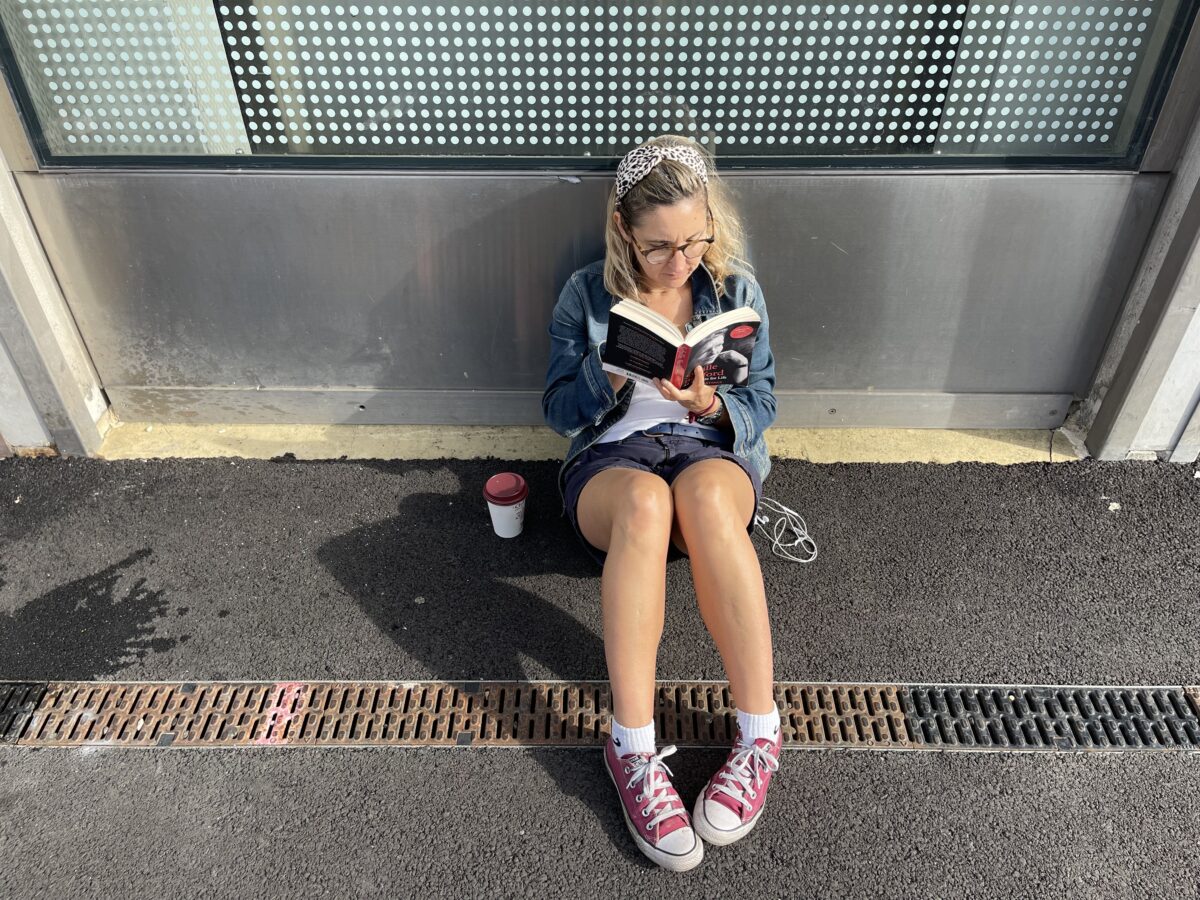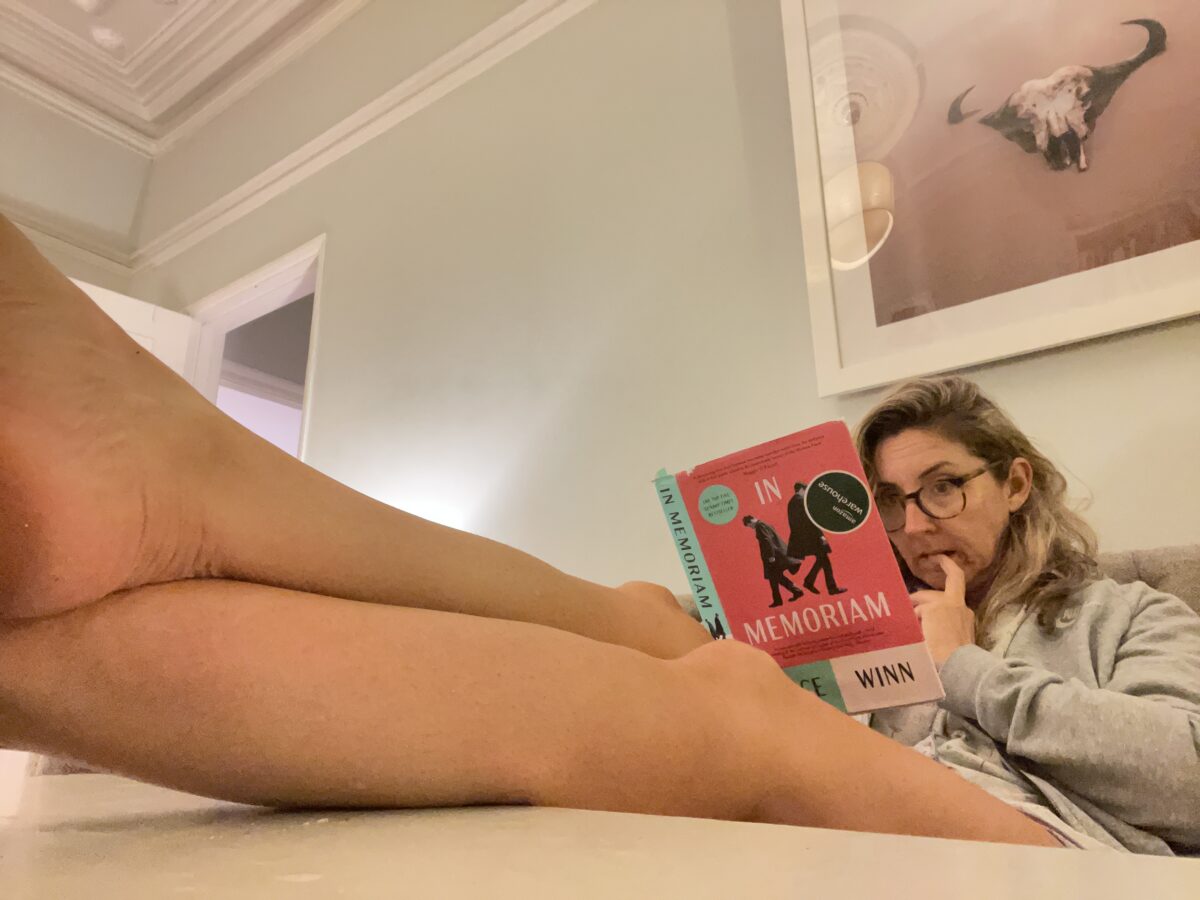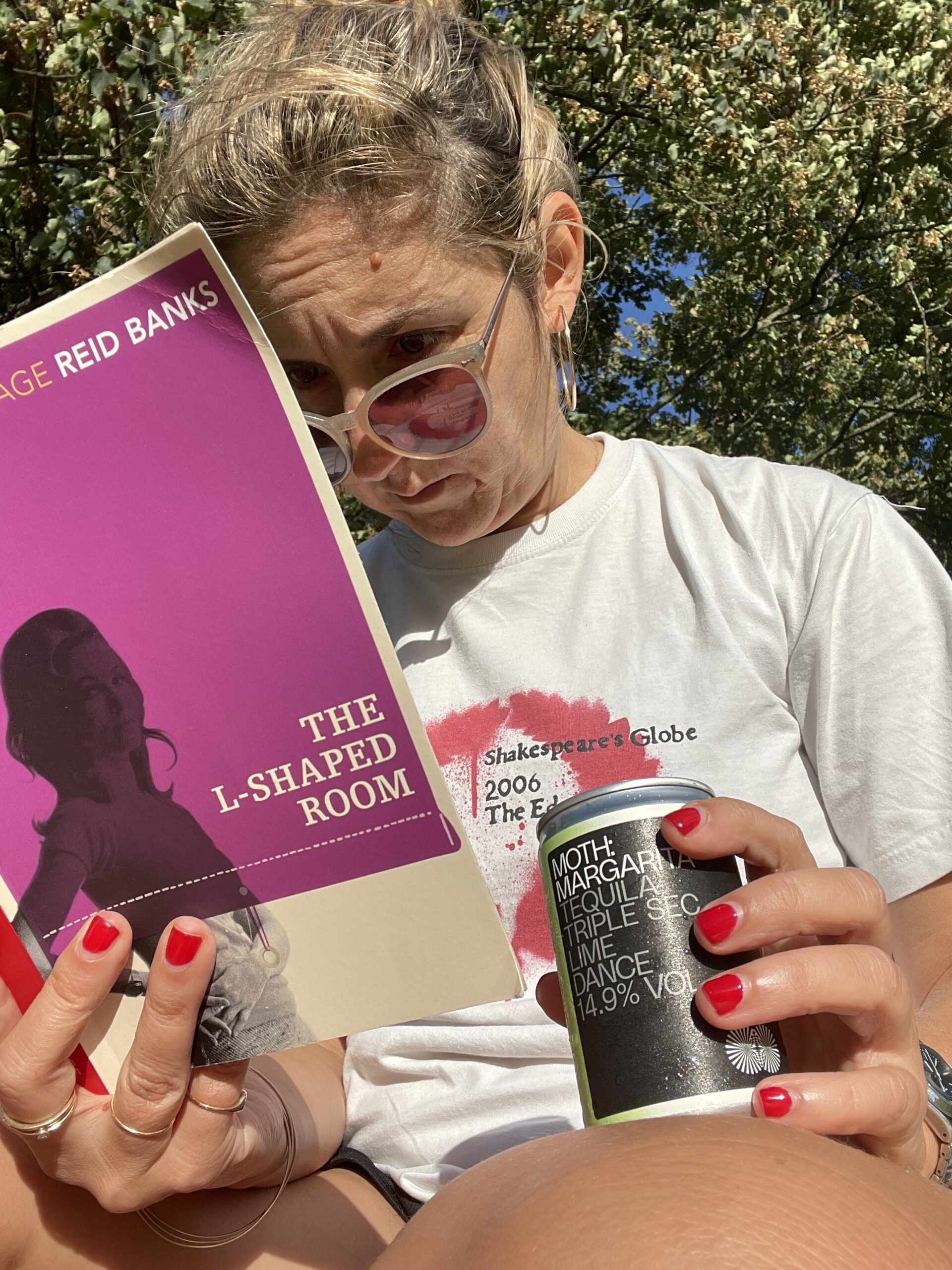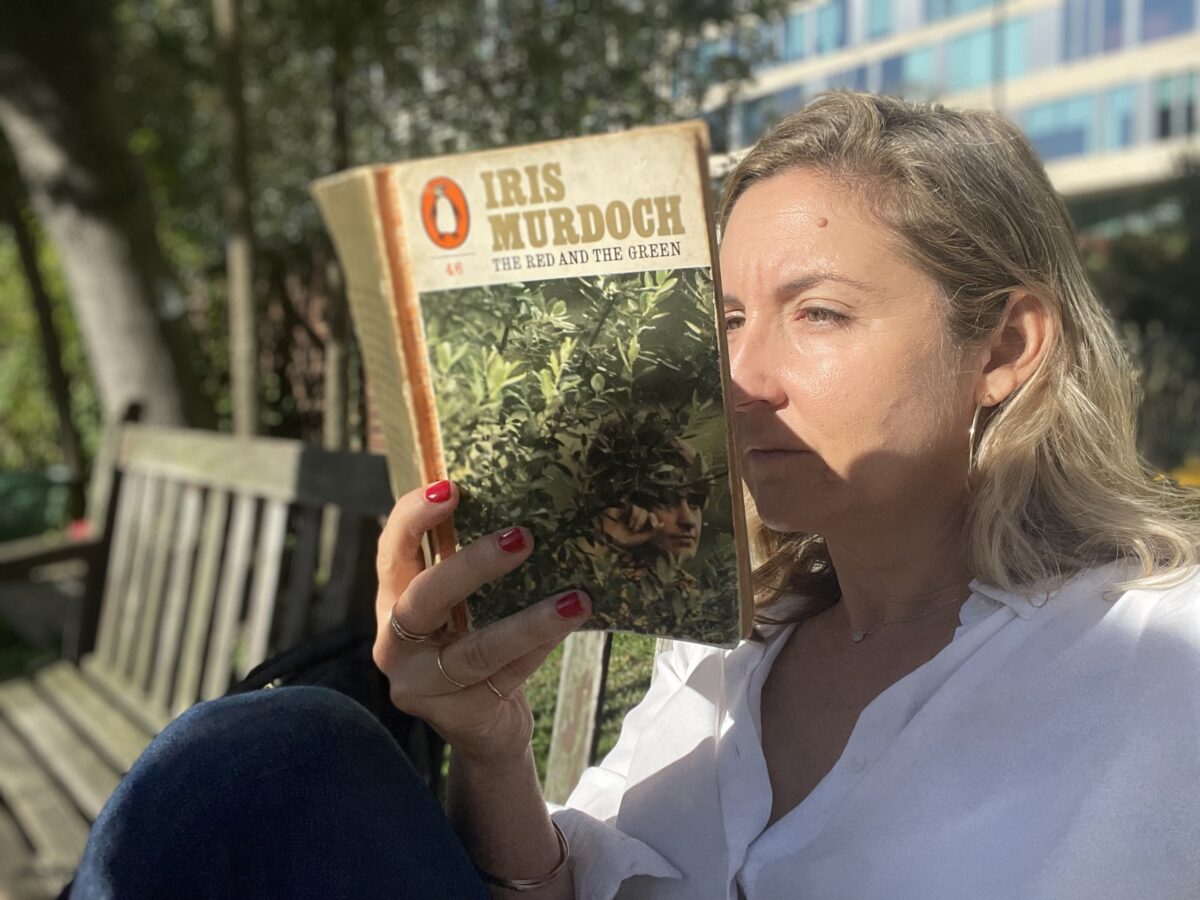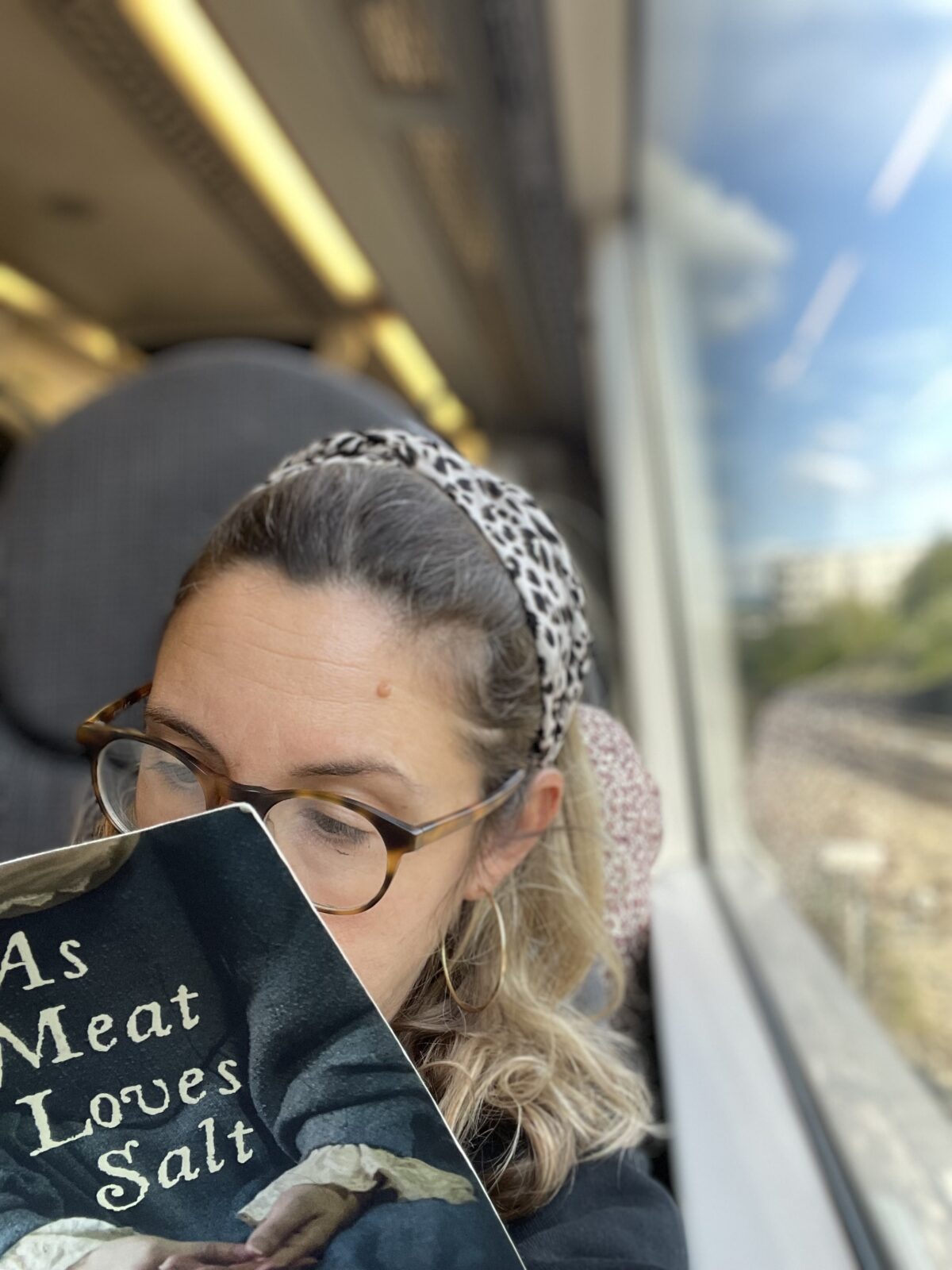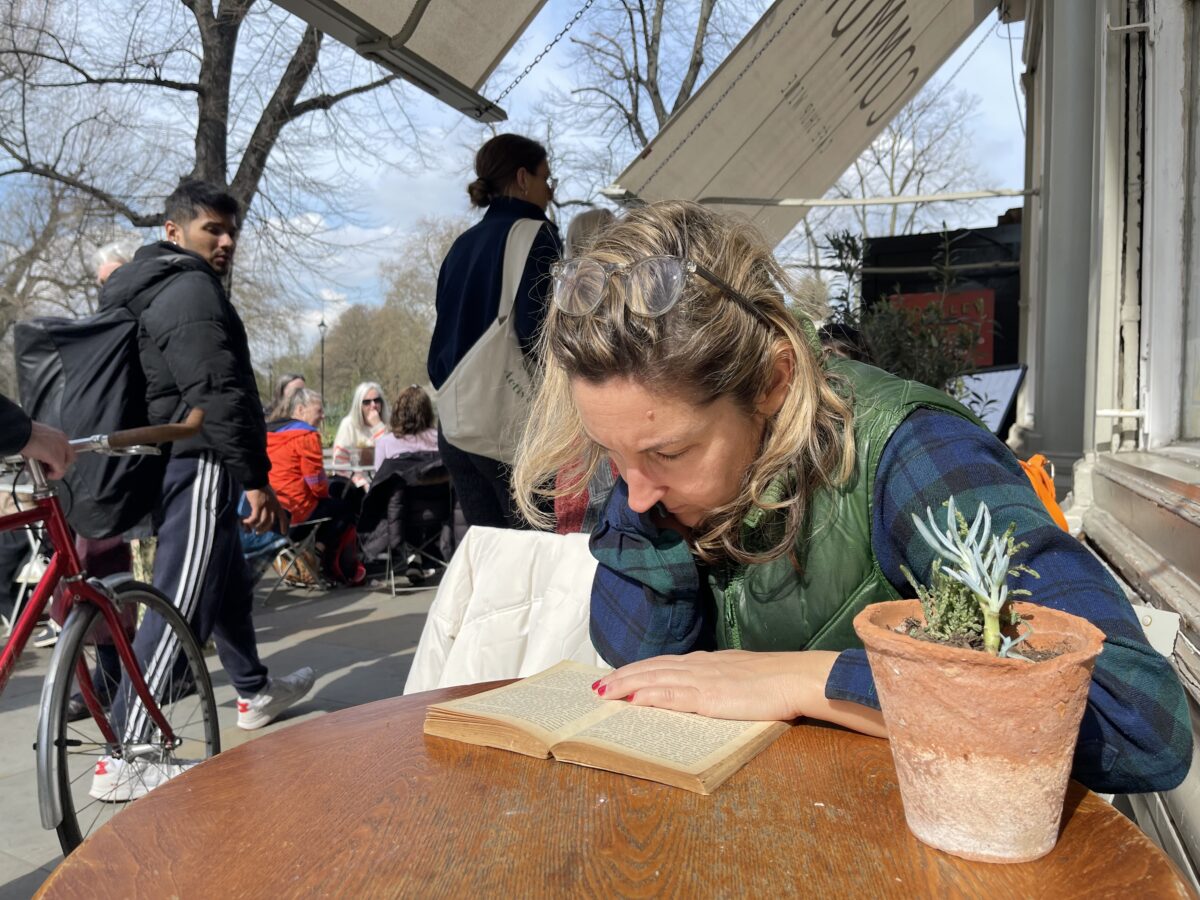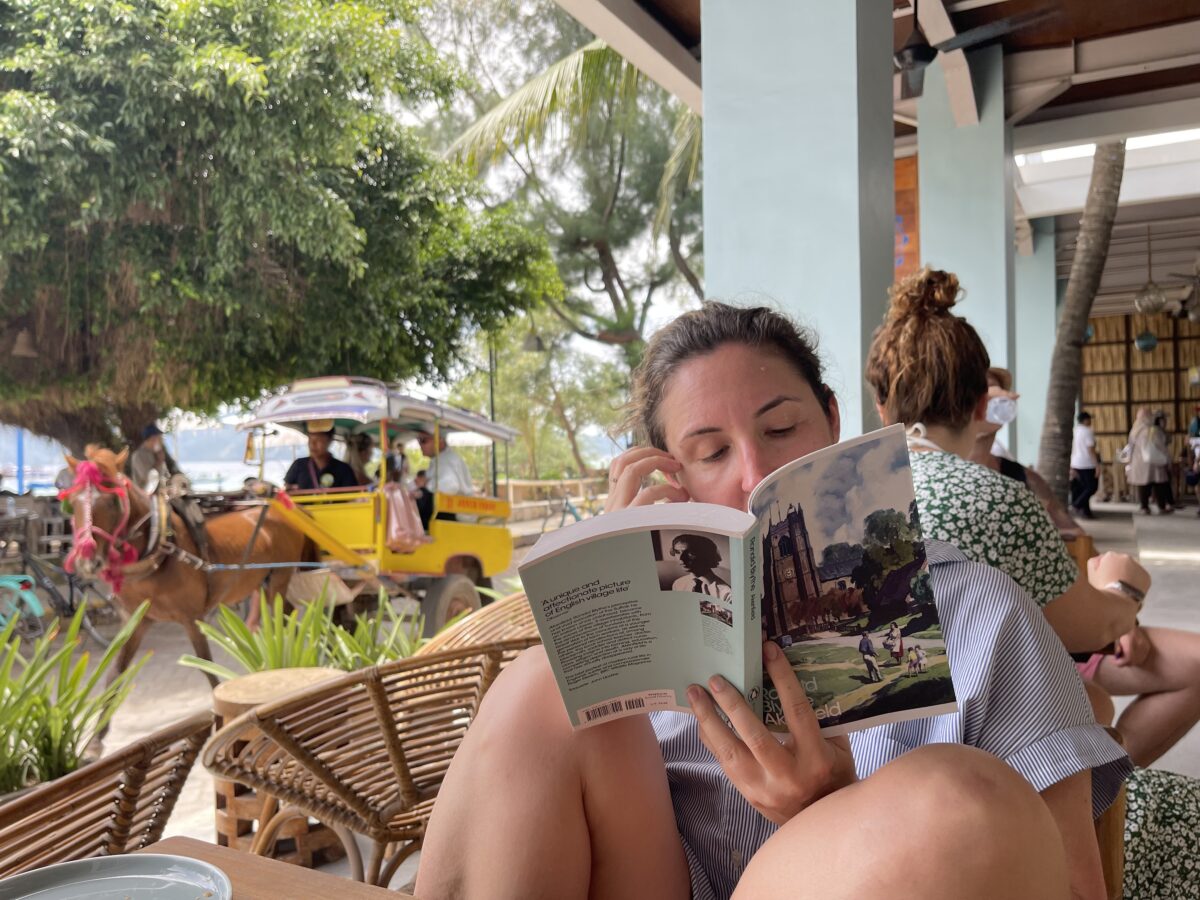I am apparently well mad for the seventeenth century at the minute. Here I am with another book about the English Civil War. This one is a murder mystery. It tells the same story from four different perspectives. It’s a really fun mishmash of all kinds of ideas: Venetian travelers, cadaver acquisition, Royalist plots, Quakers, mental health problems, you name it. The part I found most striking was the fierce debate about whether experimentation was the right way to build scientific understanding. This sounds bizarre: like, obviously it is? How else are you supposed to know anything? But in the seventeenth century this was a revolutionary idea, with most people thinking it was presumptuous to question the wisdom of the ancients. It’s a bit like when I found out that people used to object (!) to handwashing. There is something so fun about finding out how constructed your worldview is.
Tag: UK
SYBILLE BEDFORD by Selina Hastings
Here is a book that presents the mind-boggling idea that you may not have to work at anything to be a worthwhile person. This is a biography of Sybille Bedford, who is is a writer I am familiar with through only one book (A LEGACY, which I randomly found in a second hand store). Bedford was born rich, but her family lost their money, and then she went ahead and lived off the money of her various friends. She didn’t seem to find this weird, and neither did they. It is just bizarre: she goes from summers in Provence to balconies in Rome, to English salons. She is gay and sleeps with everyone in a fifty mile radius. Basically, she focuses on having a wonderful time, and everyone thinks that is just fine. WHERE HAVE I GONE WRONG. It is totally inspirational.
This lady just LOVES TO HANG OUT. Here she is in an interview: “I love food, good food, simple, authentic. Taking food with friends has a sacramental dimension for me. It is part of the love of life. ” I just love this conscious focus on enjoyment. And it continued throughout. Even approaching seventy we are told she “had amassed a large number of friends, and was constantly adding to her social circle, going out most evenings, coming into contact with new worlds and sections of society.” In her nineties her girlfriend is in her fifties! Totally baller.
IN MEMORIAM by Alice Winn
I started this book at 10pm, in bed, and next thing I knew it was past midnight. I hadn’t even looked up. It’s a long time since I got absorbed in a book so easily. It reminded me of childhood, when I used to often read for hours. I finished the whole thing the next day, despite being kind of busy. I chose long bus routes on purpose so I would have time to read, and it’s a long time since I enjoyed a London bus so much.
The story starts in a boys’ boarding school in England. The one boy, Gaunt, is in love with the other boy, Ellwood. It’s hard enough at the best of times to tell if someone likes you back, but it’s especially hard for Gaunt, because its 1913, and despite all the boys sleeping with each other in this place (?) it’s also profoundly homophobic. And that’s the other part: it’s 1913. Gaunt enlists when the war starts, and we go to the trenches. Ellwood follows him out there.
The book is inspired by the IN MEMORIAM section of boarding school newspapers, that used to carry reports of deaths of old boys. Before the war, this section was short, but after 1914 it became lengthy, there as large numbers of teenagers from the fanciest schools started dying. It’s sad to think, for the younger boys, waiting to turn 18, how they went from the it’ll-be-over-by-Christmas enthusiasm of 1913 to just-waiting-for-my-turn-to-die in 1917, 1918.
Reading this book gave me some hope that my phone has not permanently damaged my attention span. What I need to be doing is spending more time on finding books I might actually like, because when I do, it’s like I am nine again, the internet’s not been invented, and my mind is still my own.
THE L-SHAPED ROOM by Lynne Reid Banks
A novel about someone who gets pregnant before abortion is legal. Surprisingly, it is kind of uplifting. The woman concerned is middle class, and is offered an abortion by a proper doctor in a hospital. She decides this would be ‘taking the easy way out,’ (?!?) so keeps the baby. A lot of crazy things happen, such as jaw-dropping rudeness from strangers, getting fired for being pregnant (?!?), and similar. I can only say again: THANK GOD FOR FEMINISM.
Despite all this, it is curiously mostly a story about how going outside your comfort zone – in this case, she moves into a working class bedsit, and becomes friends with black people and Jewish people – can actually provide you with new opportunities and new freedoms. It’s a strangely happy book.
There was much to admire in the writing. As a little sample, here she is coming to her father’s office to tell him she is pregnant. She got pregnant the first time she ever had sex, with a fellow actor in the small-time repertory company she is with:
My father often said he didn’t know where all my ‘acting nonsense’ came from. If he could have seen himself putting on his head-of-an-industrial-empire act in that shabby, poky office, he’d have known it came straight from him. They way he glanced up from his work, looked at me for a second as if trying to place me, then let a tired smile play around his lips – it was a perfect performance of the weary tycoon smiling tolerantly at the carefree daughter who knows no better than to interrupt his Atlasian labours. . . . In some strange way I was almost looking forward to telling him now. I was glad I’d decided to do it at his office. I wasn’t afraid of him here. I saw him here, not as my father, perpetually demanding strengths and achievements of me, but as a supremely unimportant cog trying to pretend it was the whole dull wheel
THE RED AND THE GREEN by Iris Murdoch
Here was a really strange book where there was a nephew in love with an aunt, an aunt in love with a nephew (unfortunately a different one), an uncle with a lot of weird religious issues and all of this going on against the backdrop of how everyone really feels about the English in Ireland. SPOILER ALERT: they don’t like it.
I got about three-quarters of the way through and just had to stop. The incest, the obsessive Catholicism, I just couldn’t get into it. And the whole time one of the nephews was boldly heading towards what he thought was going to be a great victory for Ireland in an uprising happening at Easter 1916. He was to be garrisoned at the Post Office. I know next to nothing about Irish history, but I am pretty sure that was happened at the Post Office was not very nice, was in fact rather bloody, and that certainly it was not a victory. I just couldn’t hang in there for it.
AS MEAT LOVES SALT by Maria McCann
This book was five hundred pages long and I could easily have read another five hundred. I am in mourning that it’s over. It’s set in the English Civil War, and I now feel a weird sense of ownership of this period like: don’t you KNOW how terrible the siege of Basing House WAS? This is a fairly big leap from the beginning, when I was not sure which side Cavaliers were vs Roundheads.
It tells the story of one Jacob, and is mostly a love story about him and a man he meets in the army. Interestingly though, Jacob is not what you would call a nice man. He is very very needy and possessive, and this shows up, in time-honoured fashion, in domestic violence. And just regular violence. I read one review that said that put them off, but for me it made it more interesting. It was very compelling to see how it all made sense to him in his own warped world. Plus which, I am not sure that people who had to deal with the rigours of servant life in the seventeenth century, and then were in a terrible war, and then, and I didn’t really understand this part, were in some kind of utopian effort to claim common land as farm land (?) and then emigrated to America, are necessarily ready to be judged by today’s morality. The siege of Basing House alone!
I am desperately trying not to just immediately start another McCann. I don’t know who this lady is but I LOVE HER.
TINKER TAILOR SOLDIER SPY by John Le Carre
I loved Le Carre’s most famous novel, THE SPY WHO CAME IN FROM THE COLD, and so expected to enjoy this, his second-most-famous. Instead I was just confused. It just seemed like there were a lot of names and a lot of middle-aged men talking to each other sweatily. I think this is not the author’s fault, but mine, for reading it in tiny snippets while falling asleep over a long period.
I learnt later that the book is based on the real story of how Kim Philby, one of the most important people in MI5, was eventually unmasked as a Soviet spy in 1963. I was required to dive deep into the Wikipedia, where I was most enthralled to learn that he was turned to the Soviets while at Cambridge, and spent his whole early career attempting to get into MI5, solely for the purposes of being a traitor. Once he had fled to Moscow, he said his ‘purpose in life was to defeat imperialism.’ What a baller, bizarre statement! Can you imagine being so entranced by something in university that you would stick to it single-mindedly for the rest of your life, lying to every single person you know for decades? Can you imagine spending years sending people to their deaths for a ‘concept’? I can barely commit to a haircut!
A WREATH FOR THE ENEMY by Pamela Frankau
Here is a highly mysterious book told with four different voices. What it is about is hard to say: it’s I guess partly about losing your virginity, about about betraying your parents, and about a cow that is saved from drowning. In short, it all goes on. The best voice is the first one, where a thirteen year old girl is working on her book, the Anthology of Hates, which is all about all the people and things she hates. Brilliant.
Best of all was that this was an old library book, which has not been checked out since 1985. These kinds of old smelly books that have passed through many hands are my favourite.
WHO WAS CHANGED AND WHO WAS DEAD by Barbara Comyns
Here is another book by wonderful Barbara Comyns, whose biography is a total inspiration. It is all selling puppies and moving to Spain and renting flats and being a painter, and being a novelist is just by-the-by.
WHO WAS CHANGED AND WHO WAS DEAD is quirky even by the standards of her other books, which are pretty damn quirky. It begins mid-flood, with ducks paddling around the living room, “quacking their approval.” Then one by one the townspeople start to go mad. It is all down to some poisoned flour, but this is not the point. The point is the madness, and especially the freedom that is found in it. It was deeply and weirdly enjoyable.
AKENFIELD by Ronald Blythe
A brilliantly weird effort to capture the entire life, top to bottom, of an English village. Written from interviews made in the twentieth century, and lightly fictionalized, it focuses on their memory of life in the nineteenth, and captures the collapse of a certain rural way of being.
That collapse was no bad thing, because let me tell you, these people WORKED. Here we learn that it was not the Industrial Revolution that created exploitation. Agricultural laborers had four hours off a week, 10-2 on Sunday (i.e., just enough time to go to church). As one man, the grandson of a laborer puts it:
They bought their life’s strength for as little as they could. They wore use out without a thought because, with the big families, there was a continuous supply of labour
There is a kind of tragic over-emphasis on the quality of work, with people taking what seems to us now a really bizarre amount of pride in their work, because as another worker says:
A straight furrow was all that a man was left with
Apparently it was a very silent world, though “Television is now breaking down their silences. They are getting accustomed to the idea of dialogue”
It is perhaps no surprise that given half a chance, lots of people fled. I was stunned to learn that from from 1871, 700,000 British left for the colonies, and “It was the not the idlest and wastrels who sailed,” leaving lots of land effectively empty. As a child of the former colonies I am very familiar with what it was like for those who left, but I never thought about what it was for those who stayed.
It captures a world so small it can only boggle the mind:
Pub men stayed loyal to one pub for maybe the whole of their lives. . . now they will drive down to Southend or Clacton and let off steam
I also learnt more than I ever wanted to about agriculture in Suffolk. For example, East Anglia had 17 different types of apples (WHY?), all harvested at different times. And that sheep used to be managed by having their tails cut off with a hot iron and “the balls nicked out with the shepherd’s teeth. He ate well that day.”
I enjoyed all this interesting-slash-disgusting agricultural information, but even more I enjoyed a window into many individuals lives. One guy goes to London briefly and works in the railway:
There is a place in Broad Street Station where you can stare through the arches and see the stars, an and they were the only things I can remember seeing in London. That is the truth.
Ronald Blythe left school at 14 and taught himself from public libraries and it shows. It’s a wildly ambitious, beautiful book. I could go on and on, and be grateful you were not with me while I was reading it, because I did go on and on. I’d love to read it for lots of different communities. I can only imagine how interesting it would be if you took a single street of vendors in Harare, for example, or a Convent in HoChiMinh City.


